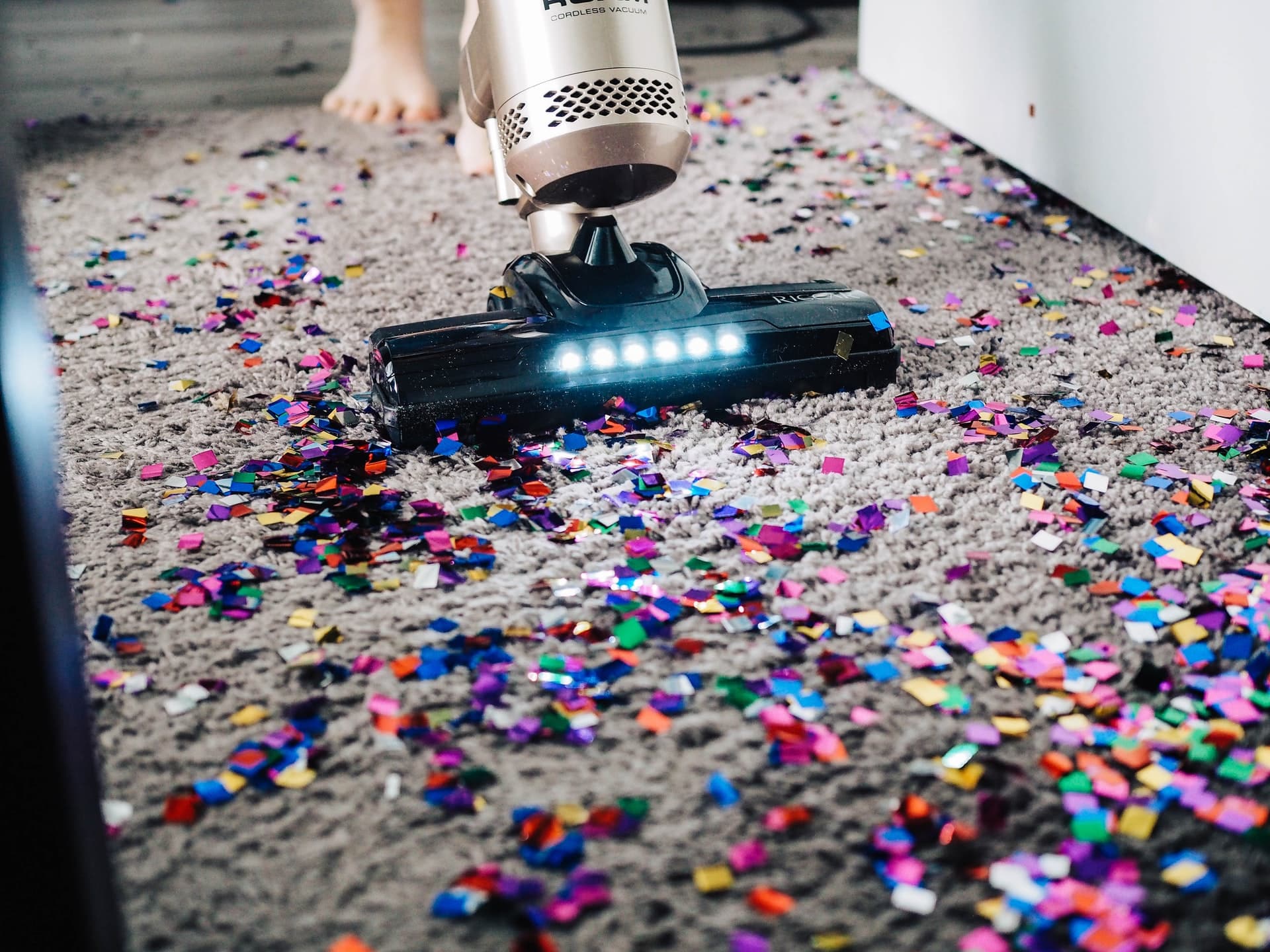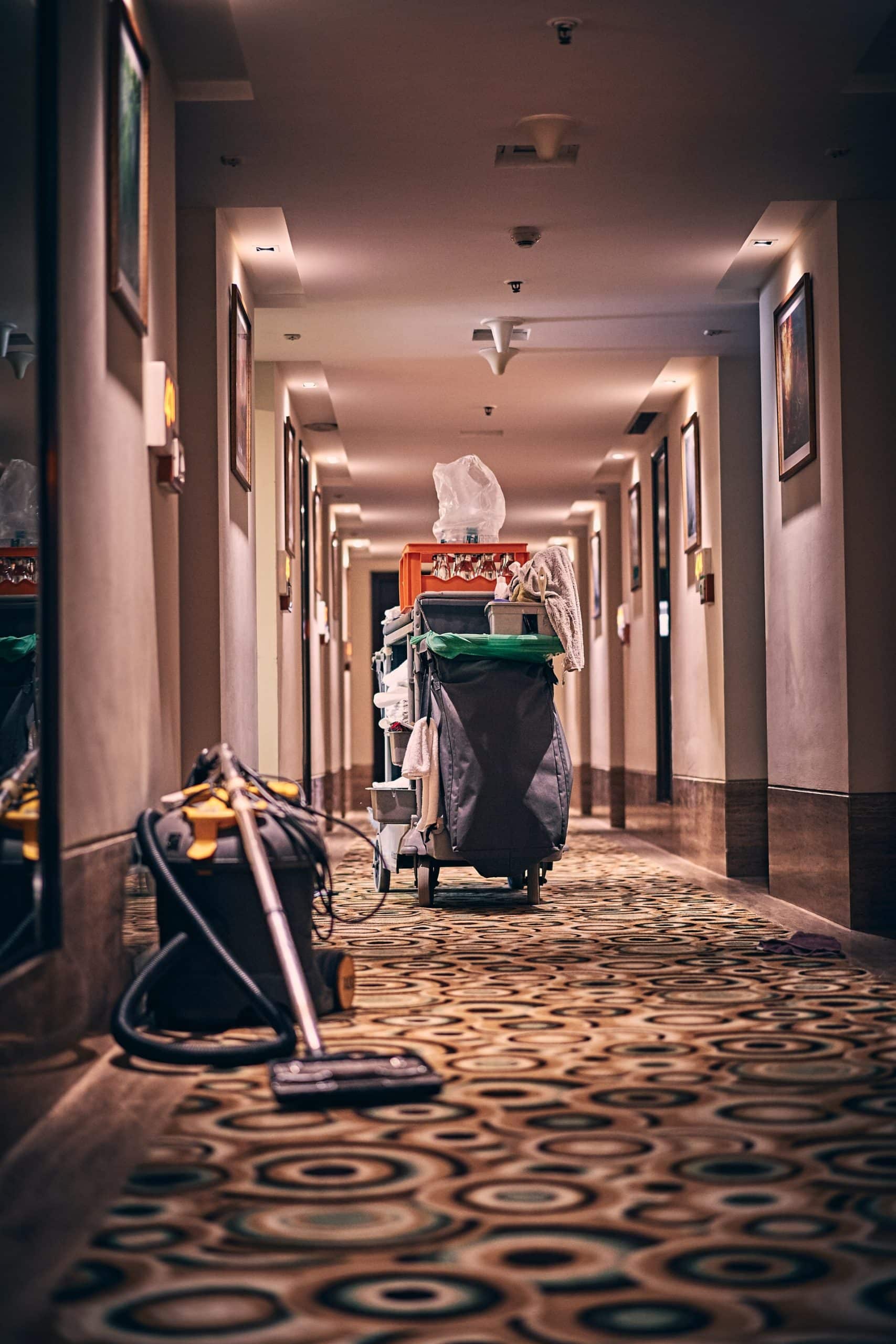In response to COVID-19, many businesses are not only considering long-term business strategies, but they’re also re-assessing their internal cleaning operations to improve the quality of the services they provide. Technology is helping them to do that.
Over the decades, the cleaning industry has been revolutionized with high-performing and user-friendly cleaning innovations that have helped businesses to increase productivity and lower costs while protecting their employees and the environment.
Below are some ways in which technology is transforming the cleaning industry.
IMAGE: UNSPLASH
3 Ways In Which Technology Has Made A Positive Impact On The Cleaning Industry
1. Automation And Robotics
Today, cleaning and sanitation are more than just using soap, water, and sponges. Many of these mundane cleaning tasks are being replaced with automated systems that require minimal human interaction. Businesses can program machines with selected routes, settings, and even schedule them to clean independently. This is especially beneficial for cleaning spacious areas such as airports, schools, and shopping malls.
Advanced cleaning machinery is designed to be multitaskers. Their multitasking nature makes it easier for organizations to get various tasks done quickly, which is considerably more economical in the long run as well.
Other benefits include wireless operations, better reliability, quieter mechanism, modern systems, longer lifespans, and more. During the pandemic, technology that facilitates automation and robotics can also be beneficial for businesses that have a shortage of staff.
2. Monitoring Systems
With advanced monitoring systems and smart devices, a company can set up notifications to track and identify areas that are not being as efficient as they could be.
These monitoring systems can collect real-time data and alert managers when tasks are complete or when it’s time for refilling, recharging batteries, or maintenance. The benefits that this technology provides are increased productivity, reduced costs and human error, and enhanced customer experience. This is also beneficial for employees as it can free them from repetitive, labor-intensive tasks and help them to focus on preventative maintenance positions.
These monitoring systems also help to reduce the risk of injuries, especially in the cleaning industry, where a lot of the work can be manual. Employees can access real-time visibility into the workplace so that they do not need to walk through high-risk sites.
3. Lower Carbon Footprint And Less Impact On Health
Now more than ever, people are aware of the negative consequences of cleaning supplies and household chemicals. Many of these products can irritate the eyes, throat, and skin as well as cause headaches and other health issues.
High-tech products prevent us from adding more contaminants to the environment and help in conserving water. They also reduce our exposure to harmful chemicals and fumes. In addition to that, they are energy efficient, which means that they have low electricity consumption.
How Is Wolven Industries Disrupting The Cleaning Industry?
Founded in 2018 by Mike Norton, Wolven Industries is a defense technology engineering firm about to launch its first-of-a-kind UV-C light cleanser called the uRay, to combat viruses and bacteria.
UV-C technology is not new and can be traced back to the 1800s. However, the catastrophic effects of the COVID-19 pandemic have attracted the public’s attention to the germicidal properties of UV-C light. When used at the correct wavelength and for the required amount of time, UV-C light can kill up to 99.99% of microorganisms.
Unlike most dangerously unreliable and cheap UV-C products on the market, the team of engineers and physicists at Wolven industries have built a pocket-sized device with futuristic safety features that are easy to carry, easy to use, and, above all, efficient. The device includes:
- A reflective sheet behind the bulb that focuses 90% of the emitted UV light on the target surface
- Built-in infrared proximity sensors to measure the distance between the device and the surface to be disinfected, and
- High-quality UV-C LEDs from Laser Components GmbH, a world-leading manufacturer of UV LEDs, with a lifetime of thousands of hours. Compared to other disinfectant methods, this can be cheaper in the long run when all life-cycle costs are included.
Moreover, Wolven Industries’ UV LED technology is environmentally friendly. It contains no toxic materials or chemical additives, which means that there’s no risk of contamination in case of improper installation or breakage. Once the UV-C rays come into contact with the pathogen, the emission of the right wavelength for the right duration of time is enough to inactivate them.
Final Words
Without a doubt, technology has had a positive impact on the cleaning industry. It has made the cleaning industry more transparent, effective, efficient, and safer, making the customers’ needs a top priority. As we witness more innovations and breakthroughs, we can expect to live in a cleaner and greener world.
Which of the technologies listed in this article are you planning to adopt?
IMAGE: UNSPLASH
If you are interested in even more technology-related articles and information from us here at Bit Rebels, then we have a lot to choose from.


COMMENTS